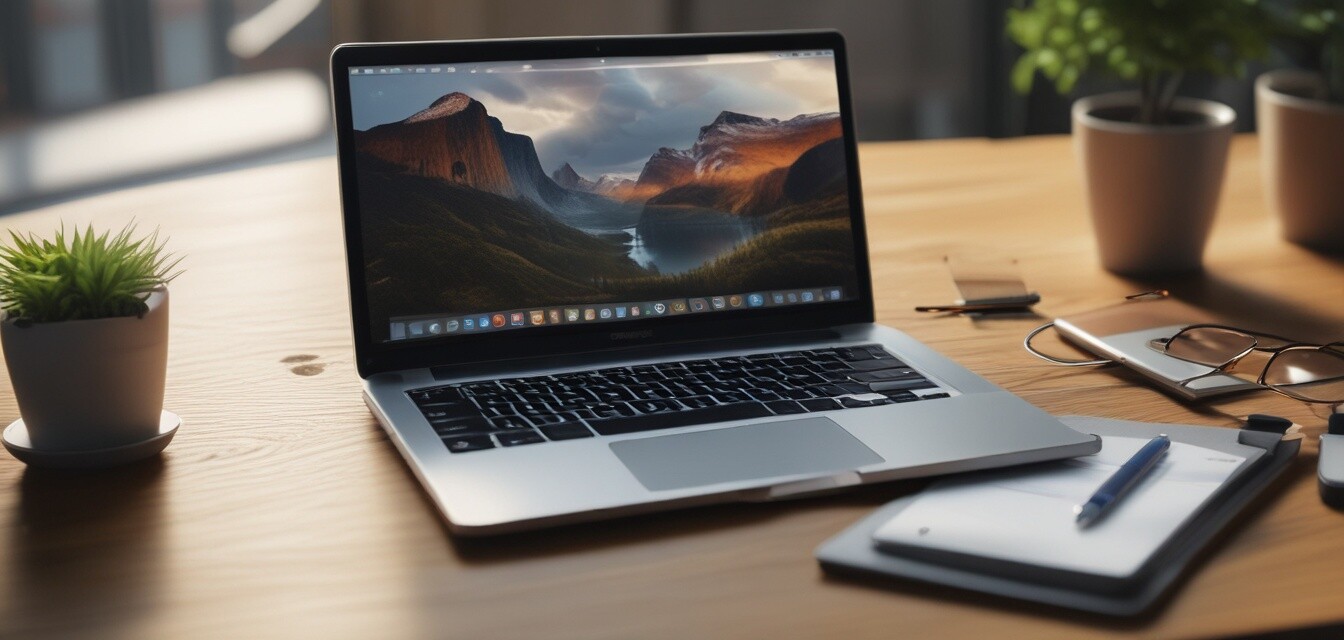
How to Choose the Right Laptop for College
Key Takeaways
- Prioritize your academic needs and choose a laptop that meets them.
- Consider your budget without compromising essential features.
- Look for a good balance of performance, battery life, and portability.
- Explore different laptop categories for your specific use case.
- Don’t forget about warranties and after-sales support.
Choosing the right laptop for college can be a daunting task with the myriad of options available in the market today. As a crucial tool for your academic success, your laptop must meet various requirements—from organizing notes to running specific software and even handling online classes. In this article, we'll guide you through the essential factors to consider when selecting a laptop that fits your academic needs and budget.
Understanding your academic needs
Before you start shopping, it's important to understand the specific tasks and software your college requires. This will help streamline your search. Here are some common academic needs:
- Word processing and note-taking
- Research and web browsing
- Programming and software development
- Graphics and design work (for majors like architecture or fine arts)
- Video streaming for online lectures
Setting a realistic budget
Budget is often one of the most significant considerations when choosing a laptop. You want to make sure you get the best value for your money. Here’s a rough breakdown of what you can expect:
| Price Range | Suitable For |
|---|---|
| Under $400 | Basic tasks, web browsing, and light productivity |
| $400 - $800 | General use, college applications, and some multimedia tasks |
| $800 - $1500 | Advanced tasks like programming, video editing, and gaming |
| Above $1500 | High-end specifications for specialized fields such as engineering or graphic design |
Choosing the right specifications
When shopping for a laptop, it's vital to look at the specifications that will best support your academic endeavors. Here are key specifications to consider:
- Processor: Aim for at least an Intel Core i5 or AMD Ryzen 5 for general usage.
- RAM: 8GB is a good start; consider 16GB if you run multiple programs simultaneously.
- Storage: Solid State Drives (SSD) are preferred for speed—aim for at least 256GB.
- Battery life: Look for a minimum of 8 hours for all-day usage without needing to recharge.
- Weight: A lightweight laptop is easier to carry around campus.
Types of laptops to consider
Given the variety of laptop types available, it can help to identify which category resonates most with your needs:
| Type | Best For | Pros | Cons |
|---|---|---|---|
| 2-in-1 Convertibles | Versatile use (tablet & laptop) | Touchscreen, portability | Generally less powerful |
| Budget Laptops | Students on a tight budget | Affordable, basic functionality | Limited performance |
| Ultrabooks | Portability and performance | Lightweight, fast response | Higher price range |
| Gaming Laptops | Students engaged in gaming or graphic design | High performance, good graphics | Heavy and expensive |
| Workstations | Heavy software use (e.g., engineering) | Powerful, capable of handling complex tasks | Very expensive |
Make sure to check out our detailed guide on buying guides for more insights on selecting the right device.
Essential features to look for
Aside from the specifications, consider these essential features that can enhance your college experience:
- Keyboard and trackpad quality: Ensure they feel comfortable for prolonged use.
- Display: Opt for at least a Full HD (1920x1080) resolution to reduce eye strain.
- Ports: Make sure to have enough USB ports and consider an HDMI port for presentations.
- Warranty: A good warranty can protect you against potential issues.
Tips for maintaining your laptop
Beginners Section: Laptop Maintenance Tips
- Regularly update your OS and software for security and performance.
- Use antivirus software to protect against threats.
- Keep the laptop clean and dust-free, especially around the vents.
- Avoid exposing it to extreme temperatures or liquids.
- Consider using a cooling pad if using it heavily for long periods.
Final thoughts
Choosing the right laptop for college is about understanding your unique needs and finding a device that fits your budget and lifestyle. By taking into account your academic requirements, financial limits, and the essential specifications and features, you will be better equipped to make a wise decision. Explore various product categories and consult expert tips for more assistance as you embark on your college journey. A well-chosen laptop can enhance your productivity and overall college experience significantly.
Pros
- A well-chosen laptop aids academic success.
- Different types cater to a variety of needs.
- Investing in quality can save money in the long term.
Cons
- High-end laptops can be expensive.
- Specifications may quickly become outdated.